- Home
- Mack Reynolds
Space Visitor
Space Visitor Read online
First Printing 1977
ISBN: 0-441-77782-1
[978-0-441-77782-2]
Ace Books
Cover: Paul Alexander
OCLC/WorldCat: 3182917
CHAPTER ONE
FIVE OF THEM were seated about the central table of the recreation room. In name it was the recreation hall, but it just wasn’t as big as all that. Bring up a dozen visiting firemen, plus the three-man crew of the spacecraft, and the place was packed. However, it was a reasonably charming room, made livable with paintings and other art, complete with comfortable furniture, a well-stocked bar, Tri-Di television, and of all things, a ping-pong table. Ping-pong took a bit of getting used to in these parts; for that matter, even a card game could take some getting used to.
They were, reading from left to right, Mary Lou Pickett, American; Kingsley Brett-James, Englishman; Max Zimmerman, Israeli; Li Ching, Chinese; and Azikiwe Awolowo, Nigerian. They spoke to each other in Esperanto, for policy reasons, though all knew English, and each of them liked each of the others as much as they had ever liked anyone. They had to; it was a matter of survival.
They were playing Liar’s Dice, once-favorite of the Royal Air Force when the chips were down during the Battle of Britain.
Max Zimmerman shook the dice cup with a flourish, banged it down on the table and peered beneath the edge, hiding the cup from his neighbors with his other hand. Smiling broadly, he announced, “Three aces,” and passed the cup to Li Ching.
She looked at him suspiciously. A wisp of a girl incongruously dressed in coveralls rather than in a cheongsam dress, her native costume which would have set off to perfection her slender figure, she murmured, “I don’t trust you people, even if you swore on a stack of Talmuds, with one hand leaning up against the Wailing Wall.”
“I am stung to the quick,” Zimmerman protested. “We of Israel are noted for our honesty—especially when leaning on the Wailing Wall.”
Brett-James took up the banter. The most stereotyped upper-class Britisher ever to come down the pike, he even had that slight flaring of the nostrils that would seem to indicate that at all times the others in his vicinity were lesser-breeds-without-the-law. He was somewhat slight of build, and drawled when he spoke, with an Eton accent that came through even in Esperanto.
He said, “Did you hear the one about the Jew who was rending his clothing and pounding his head against the Wailing Wall, crying, ‘My people, my people, I want to return to my people.’? A tourist came along and listened for a while, then said finally, ‘Look, here you are in Jerusalem, don’t you know. At long last you have realized your dreams, old boy. What do you mean, you want to return to your people? On the bloody face of it, here you are.’ And the Jew said, ‘Yes, but my people are all in Miami Beach.’”
Nobody bothered to laugh.
Max Zimmerman said sourly, “Have you ever heard the one about the Englishman who was buggering the swan in the Thames Estuary?” When nobody responded he turned to Li Ching, “Come on, Chink, do you accept or not? We can’t screw you flying.”
“The trouble with you is that you try to carry idioms over into Esperanto. It doesn’t work.” She sighed. “I’m a fool to trust a kike, but I accept.”
She peered under the cup rim, and snorted with self-disgust. Bringing forth two aces instead of the three Zimmerman had called, she put them to one side while he beamed lovingly at her.
She shook the remaining three dice in the cup and banged it down on the table, peered beneath and turned to the Nigerian girl next to her. “Three aces and two jacks.” She pushed the cup and the two exposed aces over. “Your turn, Nigger.”
Azikiwe Awolowo didn’t even bother to take the cup. “I don’t trust you Chinks any further than I could throw the Great Wall of China,” she declared.
Zimmerman clasped his right hand over his heart. He was a big man, not excessively heavy, his features Germanic rather than Semitic, down to blue eyes and dirty blond hair. Less than handsome, his face looked as though it had seen some battering in its time. It was understood, although he never talked about it, that he had participated in some of the fracases with the Arabs as a younger man.
He said, “According to the Thoughts of Mao, a doubting woman is like hemorrhoids.”
Kingsley Brett-James murmured, “Have any of you read that American writer’s book, A Connecticut Yankee in King Arthur’s Hemorrhoids’? A homosexual novel, you know.”
A couple of them bothered to groan.
“I do say, I thought it was we English who were supposed to have no sense of humor.”
Azikiwe Awolowo said, “I challenge,” and picked up the dice cup. There was no extra ace there and no pair of jacks.
Li Ching rolled her almond eyes upward. “I should have known better than to try and fool a nigger.”
Max Zimmerman laughed and took up the score pad. “That makes you P-I, Chink. All you need is the G and you’re P-I-G and have to buy the drinks.” He thought for a moment. “Come to think of it, we better cut out the drinks. Make it a round of pot.”
“Why?” Mary Lou protested. “I don’t particularly like grass.”
Zimmerman looked at her. “Because, Yawl, booze is a depressant. And we need depressants like another half a dozen holes in the head. As team doctor and psychiatrist, I’m of the opinion that a hangover can help lead to space cafard. So far on this tour of duty, we’ve escaped. Let’s keep it that way.”
You’re right,” she agreed. It was her turn to throw the dice, but she made no move to reach for the cup. Sighing, she said, “What in the world are we doing here?”
“Not in the world,” Brett-James responded. “In Luna. And what we’re doing is playing Liar’s Dice, for want of anything more diverting.”
“No, what I mean is, well, what are we doing sitting here?”
Azikiwe said reasonably, “We’re sitting here because we’ve got lead in our pants. Otherwise, a slight movement and we’d be drifting around the room.”
Zimmerman laughed. “Not lead in our pants. The damned things themselves are magnetized.” He smiled at Mary Lou. “Listen, Yawl, you know perfectly well why we Lunatics are here. If we weren’t, every time a bunch of these first-tripper scientists, technicians, or other visiting firemen came up to mess around with the Luna Radio Interferometer Observatory, they’d kill themselves off left and right. Can you imagine them getting into spacesuits on their own? Some of the attempts I’ve seen would chill your blood.”
Mary Lou nodded. “Did you ever see one try to flush a toilet for the first time here in the Luna Hilton?”
“The dice, the dice, old girl,” said Brett-James.
Mary Lou shook the dice box, banged it down on the table and peered beneath, her perfect teeth biting her lower lip. She wasn’t a pretty woman by the usual standards, but she projected an undeniable beauty. Her hair was golden, though cropped short for practical reasons, but even the coveralls she wore, as did the others, couldn’t disguise her fine figure. A Southern accent slightly coated her Esperanto.
While she considered, Zimmerman asked, “Where’s the Kraut?”
Mary Lou answered, “Werner’s out in the Jaguar scouting around the moonscape. Four jacks…” She pushed the dice cup toward Brett-James. “…There you arer Your Majesty.”
The Englishman looked at her unbelievingly. “Four jacks! On the first roll? I say, do you expect me to believe that?”
Her expression was guileless.
Zimmerman shook his head, “Brecht is the only one on the team that ever bothers to go out on the surface when he doesn’t have to. If it weren’t for the fact that here we are on the moon, I’d diagnose him as moonstruck, possibly a werewolf. He’s the only person in the history of the Observatory who’s signed up for three tours of duty
. When I first got here, I saw all I wanted to see of the surface of this godforsaken satellite in my first half hour.”
Azikiwe was chuckling. Her complexion was as ebony as a Sengalese but, like so many Nigerians, she undoubtedly had a considerable number of Arab ancestors, the result being her features were almost Caucasian.
“What’s funny?” Li Chang asked.
“I was thinking of our calling that gawky sand-dune buggy a Jaguar. While I was a student in England I drove a real Jaguar. It was a wonderful car.”
Brett-James added, “But I’d hate to drive it up here, don’t you know.” He turned to Mary Lou accusingly, “Yawl, you are a liar,” and upped the dice box. There were the four jacks.
After marking the score card, Zimmerman announced, “Your Majesty, that makes you a P-I-G. It’s your buy.” He looked around. “Does anybody really want another joint?”
“Not me,” said Mary Lou.
The others shook their heads. Ennui was obviously upon them.
“What was on the news today?” Zimmerman asked Brett-James. “I can’t bring myself to listen to it any more; it’s too grim.”
“Why lay yourself open to ulcers, old chap?” the communications man responded. “The Soviet Complex and the People’s Republic of China are still making spitting sounds. China refuses to join the Soviet Complex on the grounds that it’s rightist-revisionist, whatever that is. United America and Common Europe are wrangling about the value of the pseudo-dollar again, and some elements in Europe are advocating that all American corporations there be nationalized to pay for all the funny-money that’s been laid on them by the Yanks. Brazil and the Argentine have been snarling. Bolivia and Paraguay have lined up with Brazil; Uruguay and Chile with Argenta. Peru is on the sidelines. But this time it looks as though there might be a shooting war. That Mendoza crowd in Brazil wants to amalgamate the whole continent into a United States of South America. They figure it’s the only way they can compete on the world scene. Thank God they don’t have atomic weapons.”
“Can’t the Reunited Nations do something?” Azikiwe asked.
Brett-James smiled sadly at her. “All I can say to that is you are one naive nigger.”
“Was there anything at all on the space cafard experiments?” asked Zimmerman.
The Englishman shook his head. “Not so far as a cure is concerned. They’ve got the causes nailed down to claustrophobia, fear of free fall, monotony—in short, sheer boredom and an instinctive fear of the blackness of space, particularly here on the dark side. But there are some other factors that baffle them. Thus far it would seem that man doesn’t like to live out of his own backyard, as it were.”
“Which reminds me,” Li Ching put in. “Our tour of duty is up in a month and we haven’t had a single case of cafard. Isn’t that some sort of record? I wonder who will be in the next team. They must be getting near the end of their year’s training.”
Mary Lou said, “Two from the Soviet Complex—a Bulgarian and a Pole, one from Japan, one from India, one from New Zealand, and I think that the remaining one is an Argentine.”
Zimmerman looked unhappy. “A Jap, eh? There have only been two Japs sent up here and both of them came down with space cafard in the first few weeks. It would seem that our sons of Nippon are patsies for space madness.”
Li Ching yawned and turned to Zimmerman, “Why don’t we go to bed, darling?”
“Brett-James shifted in his chair. “Max, old boy, why don’t you and I switch women for a spell?”
The Israeli answered solemnly, “I’d love to, Your Majesty, but the Chink here knows kempo and she’s threatened to break my ass if I mess around with other women.”
“Damn well told,” Li Ching affirmed.
“I say, that would be a shame.” Brett-James looked at the Nigerian. “Besides, Azikiwe is a whiz at judo, and she threatened to break both of my arms under the same circumstances. He turned to Mary Lou. “What are Yawl an expert at, a switch-blade?”
Mary Lou yawned too. “No, Your Majesty, but I’ve got an excellent left hook. I wonder where the Kraut is.”
“I could get a fix on him if you wanted,” the communications man offered. “He’s wearing his electronic I.D. tag, I should imagine. For that matter, old thing, you could call him on the radio in the Jaguar.”
“No, he doesn’t like to be bothered when he’s zipping around checking out the rocks. I think he figures on finding diamonds.”
It was then that Werner Brecht entered. He walked almost as though he were Earthside. Three tours of duty on Luna spaced over a period of three years had accustomed him to the almost meaningless gravity to a degree probably never achieved by any other Earthling. It was difficult to believe he too depended upon magnetized shoes.
“Well, here’s the Boche now,” Brett-James said. “We were just discussing swapping bed companions. I understand it’s all the thing down in United America these days.”
“Ha,” Mary Lou snorted. “Once a lecherous limey, always a lecherous limey, begging your pardon, Your Majesty.”
“By George, think nothing of it, Yawl,” the Englishman said magnanimously.
Werner Brecht made a beeline for the small bar the recreation hall boasted. There were half a dozen bottles on it, all embedded in magnetic bases, as were the dozen or so glasses of various sizes. He picked up a bottle which had his name scrawled across the label in pencil and poured himself a tremendous slug of Scotch. Not bothering with ice, water, or mixer, he brought his drink to the table and slumped into a chair.
Zimmerman regarded the glass, then said gently, “Look, Kraut, up here we’re supposedly rationed to a fifth of booze a week per person. Some of the double-domes think it causes a tendency to space cafard.”
“Go obscenity thyself,” Brecht said. “This is an emergency. Besides, I’ve been up here for three tours and I’ve never even been touched by cafard.”
Brett-James interjected, “Or, screw you, Jack, I’m all right.”
Brecht looked at him strangely. “Your Majesty, the bets are now down, and the world is going to be in the clutch.”
“Darling, what’s the matter?” Mary Lou asked in a bewildered voice.
Zimmerman was on his feet. “Werner! You don’t feel any symptoms of cafard, do you?”
Brecht regarded him solemnly. “No, it’s not that. I’m not even sure I want to tell you, but I suppose I have to.” He took a gulp of his drink.
“Darling…” Mary Lou began.
He turned to her. “Listen, Yawl. I’ve found an extraterrestrial spaceship.”
CHAPTER TWO
Undoubtedly, it had all started as far back as 1931 when Karl G. Jansky of the Bell Telephone Laboratories was exploring radio-frequency disturbances in the atmosphere. He came to the conclusion that, although local and distant thunderstorms were responsible for most disturbances, there was a third noise-component which could only be extraterrestrial in origin.
Another American, Grote Reber, was fascinated by Jansky’s discoveries. He went on to construct the first radio telescope with a dish antenna thirty-one feet in diameter.
It was a good beginning. However, as human knowledge was doubling every eight years, by 1960 the U.S. Department of Defense began construction on a one-thousand-foot reflector to conduct ionospheric research. The site was a natural depression in the earth at Arecibo, in Puerto Rico. The Lebedev Institute of Moscow, with its Leningrad and Crimean observatories, was also getting into the act; and so were the British, French, Dutch, and Australians.
Meanwhile, breakthroughs in other areas were taking place. In 1943, Astronomer Peter Van de Kamp discovered some small irregularities in the double-star system 61 Cygni, indicating that a third component, evidently non-luminous, must exist. A planet, he pondered? If so, then it must be some eight times the mass of Jupiter.
In 1960, they turned up another planet, roughly the same size, circling the small star Lalande 21185. And in 1963, Barnard’s Star, only six light years from Earth, also indicated a planet
, this one only about one and a half times the mass of Jupiter.
Barnard’s Star is second closest to earth, Lalande 21185 third, and 61 Cygni twelfth. A switch in scientific thinking occurred: the solar system is not unique; other stars, if not most, also have planetary systems; and if they have planets the size of Jupiter and larger, then they very well might have smaller ones the size of Earth, perhaps too small to detect with present-day equipment.
Excitement sped through scientific circles. Other planets—possibly other life? Intelligent life?
The search was on.
Then, in 1973, articles by Duncan A. Lunan appeared in Spaceflight, the publication of the British Interplanetary Society, and Analog, a popular American magazine, that electrified the world. The author claimed to have translated a message that had possibly been relayed to earth by robot spacecraft from an advanced culture far beyond the solar system. He was of the opinion that the automatic spacecraft might have been circling the moon for thousands of years, waiting for Earth to progress to the point where it would be able to respond to the message.
Our home is Epsilon Bootis, which is a double star. We live on the sixth planet of seven—check that, the sixth of seven—counting outward from the sun, which is the larger of the two stars. Our sixth planet has one moon. Our fourth planet has three. Our first and third planets each have one. Our probe is in the orbit of your moon.
Lunan’s theory began with an experiment conducted by the Norwegian geophysicist Carl Stormer and a Dutch colleague, Balthasar van der Pol. Sending each other a number of short-wave radio messages, they discovered a strange side effect: at times the messages were followed by mysterious echoes that were picked up as many as fifteen seconds after the original transmission. It was in 1960 that radio astronomer Ronald Bracewell came up with a possible explanation of the echoes mystery. In an article for Nature, he speculated that an advanced civilization that wanted to communicate with others might not use long-range radio signals because such signals would weaken over interstellar distance. Instead, he postulated, they might use robot spacecraft as message bearers. Sent to the vicinity of a promising nearby star, the probe could swing into orbit at about the right distance to encounter a planet with life-supporting temperatures. If it picked up telltale radio signals, the probe might bounce them back to advertise its presence, thereby producing the mysterious echoes of the 1920s.

 Happy Ending
Happy Ending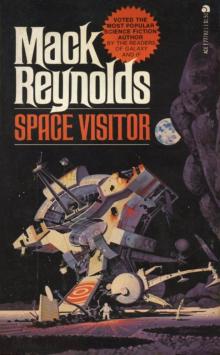 Space Visitor
Space Visitor A Kiss Before Loving
A Kiss Before Loving Episode on the Riviera
Episode on the Riviera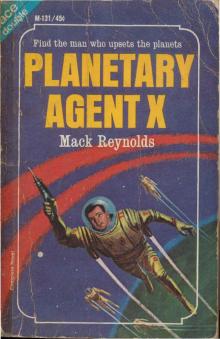 Planetary Agent X
Planetary Agent X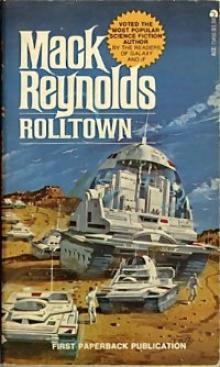 Rolltown bh-3
Rolltown bh-3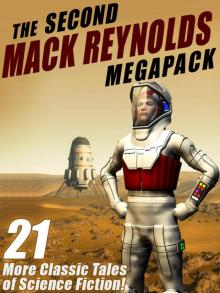 The Second Mack Reynolds Megapack
The Second Mack Reynolds Megapack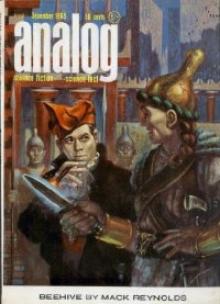 Dawnman Planet up-2
Dawnman Planet up-2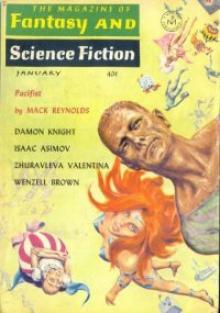 Pacifist
Pacifist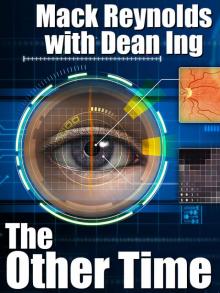 The Other Time
The Other Time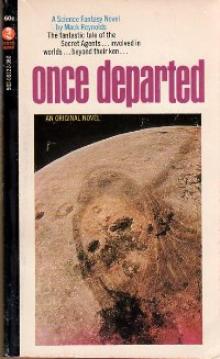 Once Departed
Once Departed IQ
IQ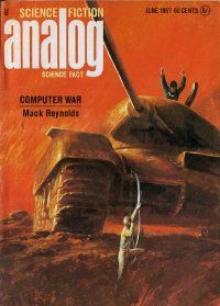 Computer War
Computer War Earth Unaware
Earth Unaware The Rival Rigelians up-3
The Rival Rigelians up-3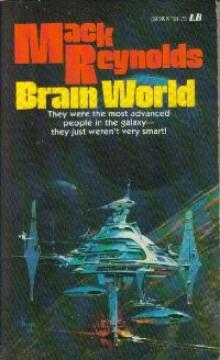 Brain World up-7
Brain World up-7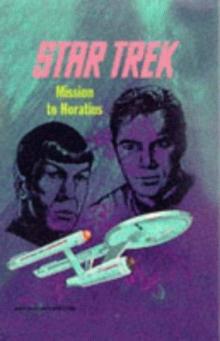 Star Trek - TOS - Mission to Horatius
Star Trek - TOS - Mission to Horatius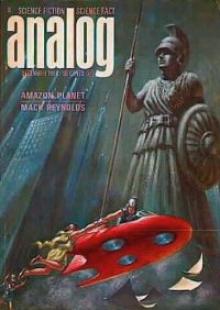 Amazon Planet up-5
Amazon Planet up-5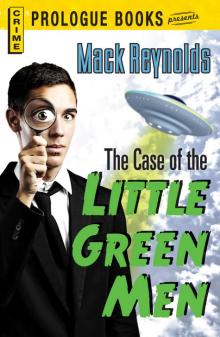 The Case of the Little Green Men
The Case of the Little Green Men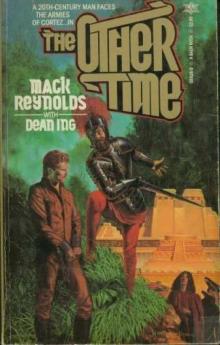 Other Time
Other Time The Mack Reynolds Megapack
The Mack Reynolds Megapack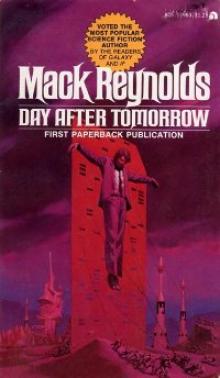 Day After Tomorrow
Day After Tomorrow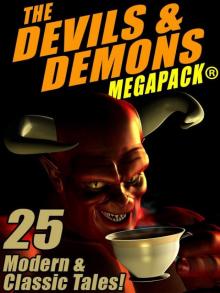 The Devils & Demons MEGAPACK ®: 25 Modern and Classic Tales
The Devils & Demons MEGAPACK ®: 25 Modern and Classic Tales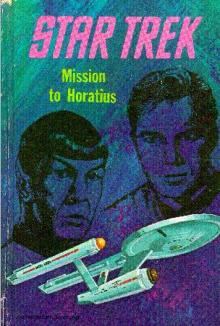 Mission to Horatius
Mission to Horatius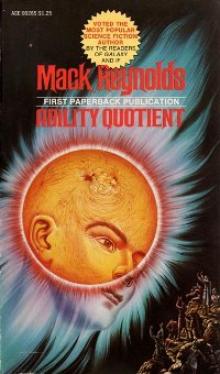 Ability Quotient
Ability Quotient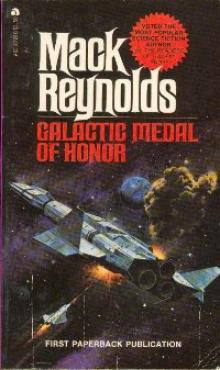 Galactic Medal of Honor
Galactic Medal of Honor Trojan Orbit
Trojan Orbit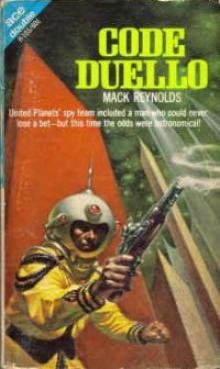 Code Duello up-4
Code Duello up-4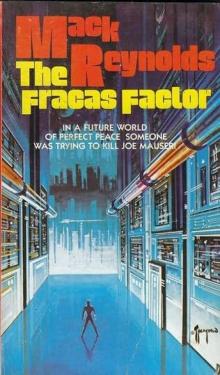 The Fracas Factor
The Fracas Factor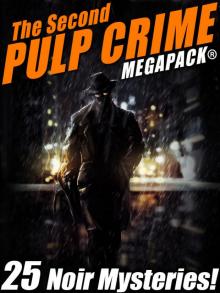 The Second Pulp Crime
The Second Pulp Crime Deathwish World
Deathwish World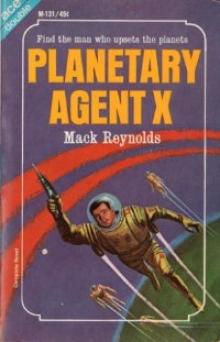 Planetary Agent X up-1
Planetary Agent X up-1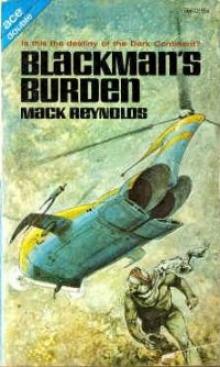 Blackman' Burden na-1
Blackman' Burden na-1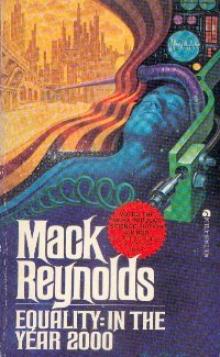 Equality: In the Year 2000 jw-2
Equality: In the Year 2000 jw-2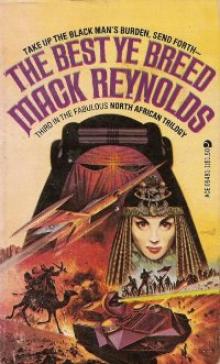 The Best Ye Breed na-3
The Best Ye Breed na-3 The Jet Set
The Jet Set The Rival Rigelians
The Rival Rigelians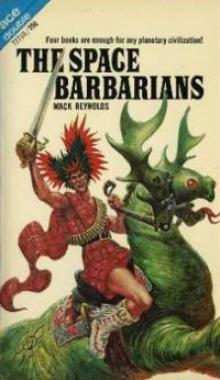 The Space Barbarians
The Space Barbarians